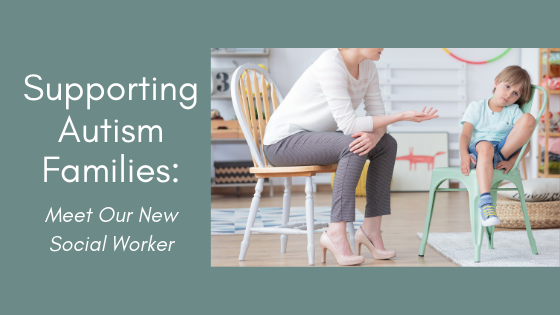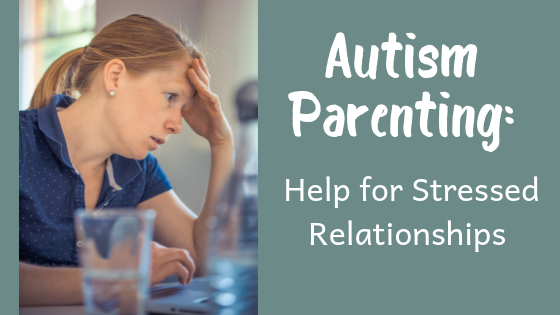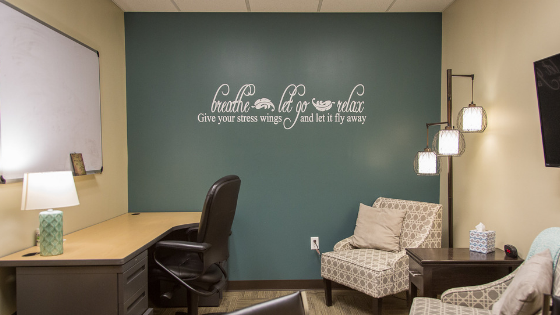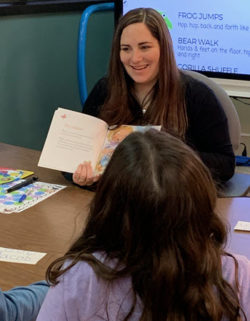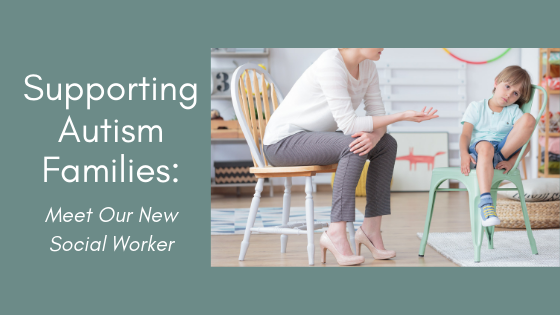
One of the unique services we provide here at Healing Haven is counseling for a variety of people impacted by an autism diagnosis. Our counselors support autism families through working directly with individuals with autism, as well as their parents and siblings.
Navigating an autism diagnosis can be complex for parents, as well as for some children and teens who feel different compared to their peers. Some may also struggle with social skills and interacting with others, or need help in understanding and controlling their emotions. We did a previous post on counseling and autism, featuring our onsite therapist Danielle. And now we are excited to announce the newest addition to our team, Mallory Meter. Mallory is a social worker who started providing counseling services for autism families here at Healing Haven in September 2019.
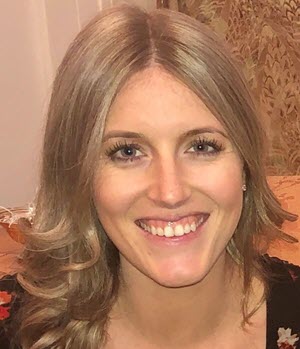
Mallory worked in the Chicago area for the past four years. She has a Bachelors of Arts from the University of Notre Dame where she majored in psychology. She then received her Masters of Social Work from The School of Social Service and Administration at University of Chicago.
In preparation for her transition here to Healing Haven, we sat down with Mallory to get to know her better. Learn about her experience and approach to therapy, and how she might support you and/or your child:
HH: Why did you want to work with kids with autism / special needs?
MM: I have always been passionate about working with children. I am a strong believer that children can teach us so much about ourselves and how to be better human beings. This is especially the case when it comes to children impacted by autism and developmental differences. While these children can face a number of challenges, they also carry so much creativity, potential, and strength. Being able to face challenges alongside these children, to learn from their resilience, and to witness their growth and change is endlessly exciting and a true honor for me.
HH: Describe your career background and other experiences you have that are a benefit to the work you will do here at Healing Haven.
MM: My first job out of graduate school was at a Chicago-area therapeutic day school for children with autism called Giant Steps. This role provided me with extensive exposure to interventions aimed at promoting social-emotional development in this population. Additionally, I learned how to navigate the world of public schools and IEPs. As a result of working closely with a multidisciplinary team made up of speech and language pathologists, occupational therapists, BCBAs and special education teachers, this role provided indispensable opportunities to learn new and creative ways to intervene with and support children impacted by autism spectrum disorder.
Following this role, I worked as a social worker on the inpatient psychiatry unit at Ann & Robert H. Lurie Children’s Hospital of Chicago where I also completed my training practicum in graduate school. Here I was able to further develop my understanding of a range of psychiatric diagnoses and strengthen my skills in providing evidence-based treatments at an individual, family, and group therapy level. Most recently, I had moved into a new position within the Division of Child and Adolescent Psychiatry and the Division of Developmental and Behavioral Pediatrics where I provided case management, parent training, and therapeutic/educational support to families and children impacted by ASD, Down Syndrome, Intellectual Disability, and a range of additional learning differences. More than anything, my time at Lurie Children’s Hospital confirmed my passion for working with children and adolescents impacted by developmental differences, especially those impacted by comorbid mental health concerns.
HH: What motivates you coming to work every day?
MM: My favorite part of this work is partnering with children and families. I love helping them feel understood, accepted, and supported in a way they haven’t before. The moments when a caregiver or child communicates in some way these feelings of being seen, accepted, and supported are what motivates me to come to work everyday. Coffee is always helpful too…
HH: Describe the types of counseling you will do with clients at Healing Haven. Skills you will work on, tools you will incorporate to help clients grow, etc.
MM: I hope to promote a wide range of skills and areas of growth in my work at Healing Haven. These include emotional identification and regulation skills, perspective taking and social skills, and coping/distress tolerance skills. I would describe my therapeutic lens as trauma-informed, strengths-based, relational and family systems-informed. Attachment therapy is also a guiding framework in my work. Within this broader stance, I pull from a number of evidence-based treatments including: Cognitive Behavioral Therapy, Dialectical Behavioral Therapy, Acceptance and Commitment Therapy, and Brief Solutions Focused Therapy to name a new. Additionally, a few specific tools I love to utilize in my work with autism families and children include mindfulness, Collaborative and Proactive Solutions, and Social Thinking strategies.
HH: What is a favorite memory of working with a client?
MM: My favorite memory was being staffed with a little guy on my caseload at Giant Steps. We had a field trip to a pool. He had previously been extremely scared (emphasis on extremely) of water. After a ton of work he was able to get in the pool and even go on the water slide! As a result, I’ll never forget his smile that day.
And here some fun things to know about Mallory 😊
- Favorite food: Bread, bread, bread
- Radio Station/Music on iPod: NPR or my own music
- Favorite movie: Wild
- How do you relax/de-stress outside of work: Spending time with family, yoga, reading (I’m a huge bookworm!)
- Drink: Coffee
- Favorite book: I don’t think I can pick just one!
As you can see, Mallory is a great asset to have on our team. We are excited to have her here helping autism families! If you are a parent in need of help for yourself, or your child is struggling with things related to their autism, ADHD, depression or anxiety, we are here to help! Simply fill out the Contact Us form and we will get back with you!



